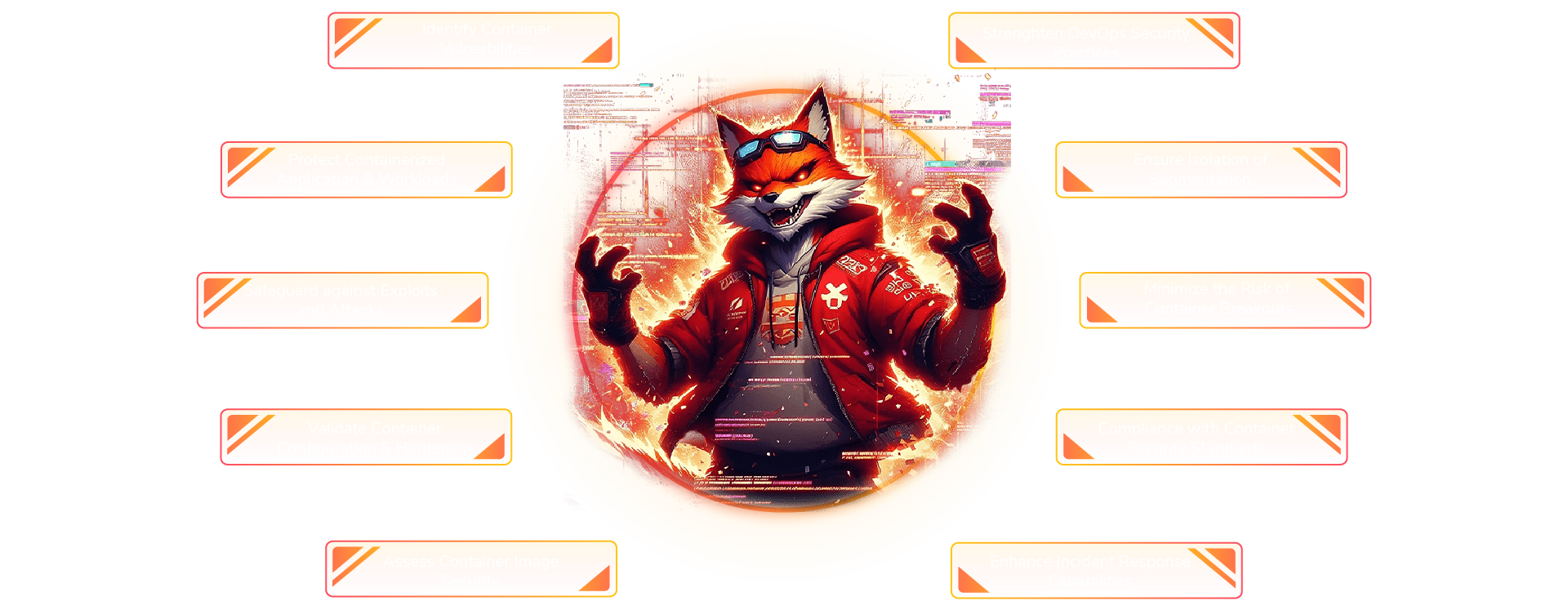Container Security is a continuous process of safeguarding containerized applications from prospective threats. It manages risks through CI/CD pipelines, container network infrastructure, its management stack, and the applications running on such containers.
As more and more organizations adopt container technology, this significantly increases the threat landscape. Adversaries can exploit a vulnerable container application and position themselves to access your organization’s infrastructure or move laterally through your cloud environment. Such security risks can arise through your container preparation, development, and deployment phase.
Container Security focuses on protecting the integrity, confidentiality, and availability of containerized applications and their underlying infrastructure. Containers provide a lightweight and isolated environment for running applications, but without proper security measures, they can become potential entry points for attackers and increase the risk of compromise.
Container Security involves implementing security controls and best practices throughout the container lifecycle, including container image scanning, secure configurations, access controls, network segmentation, runtime monitoring, and vulnerability management. It aims to minimize the attack surface, detect and respond to threats, and ensure the overall security of your containerized environments.
Container Security safeguards containerized applications and their underlying infrastructure throughout their lifecycle. It involves implementing security controls, best practices, and continuous monitoring to mitigate risks, detect vulnerabilities, and prevent unauthorized access or data breaches.
We thoroughly review the underlying host system that runs containerized environments. This includes assessing the host’s security configuration, patch management, access controls, and hardening measures. By ensuring the host system’s security, we create a solid foundation for secure container deployments.
Our experts review containerized applications, analyzing their security posture, vulnerabilities, and potential attack vectors. We assess the application’s code, dependencies, libraries, and potential security gaps. We identify vulnerabilities through static and dynamic analysis and provide recommendations to mitigate risks.
We assess the security controls in place to prevent container breakouts. Container breakouts occur when an attacker gains unauthorized access to the host system from within a container. We analyze the isolation mechanisms, sandboxing techniques, and access controls to minimize the risk of breakouts and ensure secure multi-tenancy.
Our team evaluates the runtime configuration of container orchestration platforms such as Kubernetes, Docker Swarm, and others. We review access controls, authentication mechanisms, pod security policies, and resource limits. Ensuring secure configurations prevents unauthorized access, privilege escalation, and resource abuse.
We assess the networking aspects of your containerized environment. This includes reviewing network segmentation, firewall rules, container-to-container communication, and ingress/egress controls. We ensure that your containers are isolated, communication is secure, and your network infrastructure is protected.
We analyze the security of your container management stack, including the tools and platforms used for container orchestration, monitoring, and logging. We assess the security configurations, access controls, and encryption mechanisms to ensure the integrity and confidentiality of your management stack.
